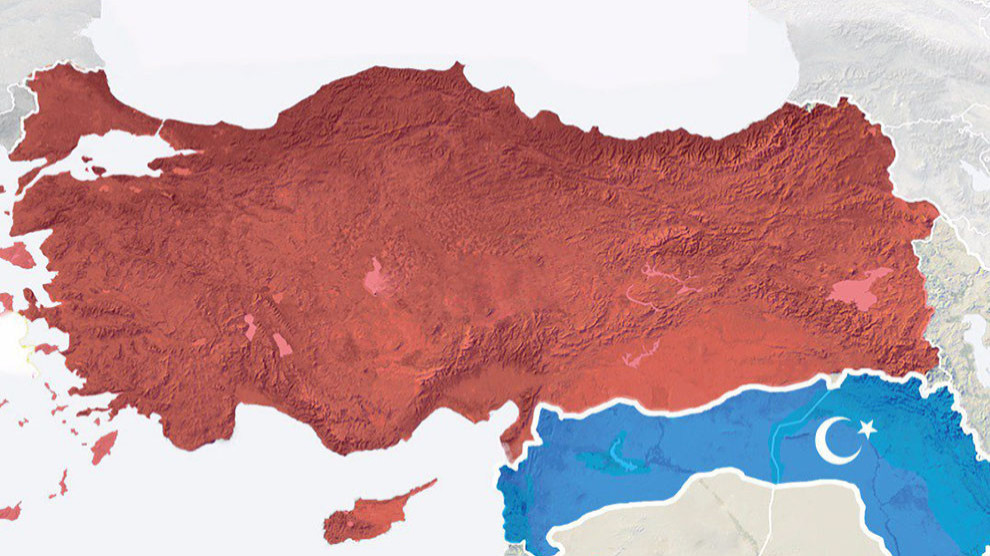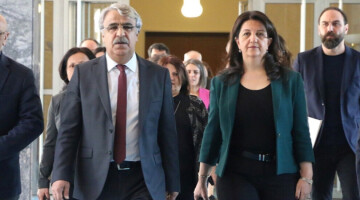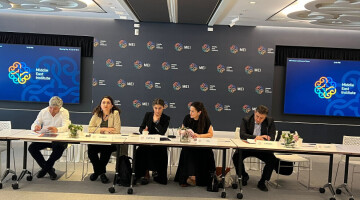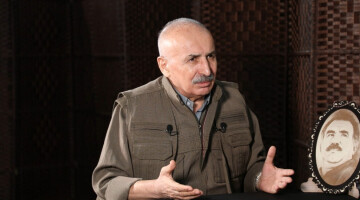Just a few weeks after the occupation of Serêkaniyê (Ras al-Ain) and Girê Spî (Tal Abyad), the "Turkification" of the region began. According to current information, the Directorate General of Turkish Migration has begun to prepare the resettlement of families from the "Turk States" in Central Asia to the two northern Syrian cities.
In Istanbul, Hatay, Antep and Urfa, the Directorate General for Migration, coordinated by the Turkish secret service MIT, has started to prepare the resettlement of refugees in shelters in the occupied corridor from Serêkaniyê to Girê Spî.
Resettlement of people from Central Asia to Rojava
According to current information, the MIT is meeting with families who have migrated to Turkey from so-called Turkic states such as East Turkistan, Turkmenistan, Uzbekistan, Tajikistan, Azerbaijan and Afghanistan in order to convince them to resettle.
Families of mercenaries are preferred
First, the families of Turkish-backed militias gathered under the name of the "Syrian National Army" (SNA) are selected for settlement. To resettle them in the region, they receive every possible support from the Migration Authority, the Turkish Red Crescent and AFAD (Disaster and Emergency Management Presidency). The families are meant to be settled on a five-kilometer-wide Turkish belt, which will initially extend from Serêkaniyê to Girê Spî. Syrian refugees will be accommodated in deeper inland of the country.
Own militias already settled on the border
So far the so-called "Turkmen militias" from the SNA, i.e. mercenaries from the Sultan Murad Brigade, the Sultan Suleyman Shah Brigade, the Fatih Sultan Mehmet Brigade, the Muntassir Billah Brigade and the Samerkand Brigade have been settled already at strategically important points along the border. Legally, the Turkish state refers to the Adana Agreement of 20 October 1998, in which the Turkish and Syrian states agreed that Turkey could pursue "terrorists" up to five kilometers inland.
Erdoğan has made his intention clear: "We're not leaving!"
After his recent visit to Hungary, Turkish President Tayyip Erdoğan made it clear with reference to the Adana Agreement: "We will not withdraw unless the other countries have withdrawn. (...) We have a document like the Adana Agreement. We will continue our position here with the authority that the Adana Agreement gives us."
Central Asian militias on the border
The Turkish state has already pursued the same tactic in Afrin, Azaz and Jarablus. Mercenaries brought in from countries such as East Turkistan, Turkmenistan, Uzbekistan, Tajikistan, Azerbaijan, the Uighurs and militia officers from the Caucasus and Central Asia have been settled along the border with their families. These militias control the border crossings there. In Idlib, this concerns the region of Jabal Akrad, Jabal Turkman, the border crossing Bab al-Hawa, Ayntarib, in Afrin Jindires, Bilbilê and Shera areas, in Azaz the Bab al-Salama border crossing and the border areas near Jarablus.
Joint Preparations by the Migration Authority and MIT
A staff member of the Centre for Temporary Accommodation of Protection Seekers told ANF that MIT was already allocating addresses to Syrian refugees in the occupied territories.














